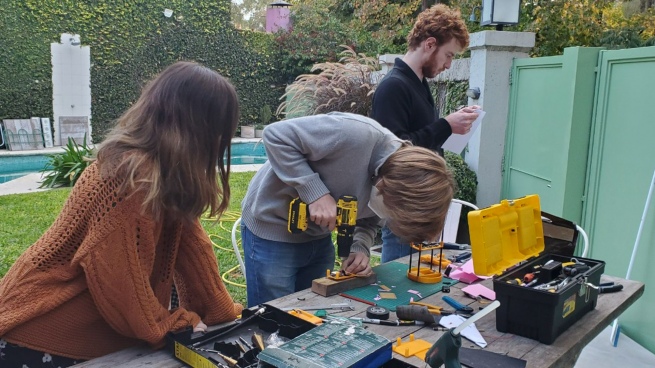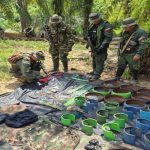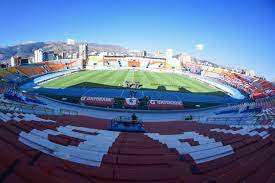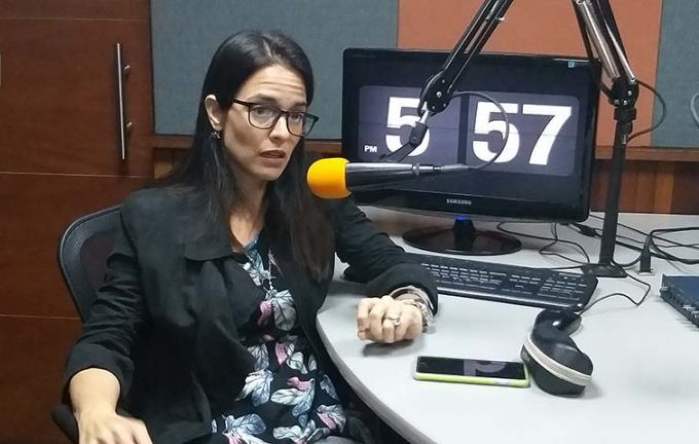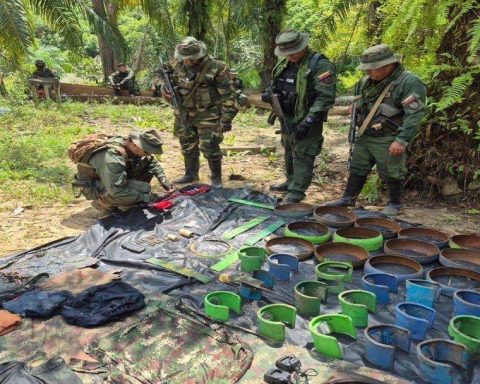Students from all secondary schools in Argentina have time Until May 31 to register for the local edition of the “CanSat” competition, an initiative that encourages young people from all over the world to get involved in the operation of satellite technology through the design, construction and launch of a probe the size of a soda can.
CanSat is a initiative of the United States space agency (NASA) and the European Aviation Safety Agency (EASA) conceived for university-level students, but in its first edition in Argentina it was extended to teams of 3 to 5 high school students accompanied by at least one teacher, by decision of the Ministry of Science, Technology and Innovation and the National Commission for Space Activities ( Conae).
The teams that register until May 31 will first go through a mandatory training and then they must present their projects in writing, which will be evaluated by specialists, who will select a score that will receive the kits to build your own probe.
In the meantime, from these twenty projects, the five to be released by a rocket from one of the launch centers in Argentine territory.
?? High school students wanted for space mission.
Those interested can join the program #CANSAT and participate in this challenge that we organize with @ciencia_ar
?➡️?️ Form your team and sign up before 5/31: https://t.co/PZm8njE8Cz pic.twitter.com/EJRZRvS5sZ
— CONAE (@CONAE_Oficial) May 9, 2022
The kits to build the probes include electronic components, power sources and sensors to fulfill the primary mission of the device, which will be to record temperature and humidity data that must be transmitted to the ground station once the launch rocket releases them at a height about a kilometer to make a parachute-controlled landing.
The secondary mission of the probe must be defined by the team based on the materials received or those that can be integrated while respecting the dimensions and weight of the device established by the competition.
The Science Teaching graduate and head of Conae’s Mass Training unit, Maximiliano Pisano, stated in dialogue with Télam that “the call is open to all secondary schools in Argentina”.
“Teams of 3 to 5 students can be presented accompanied by a teacher, each school can present all the teams that are interested in participating and each teacher can accompany the number of teams that they need to accompany,” he specified.
“We are proud to carry out the CANSAT initiative in the country, which proposes to awaken early scientific-technological vocations by democratizing access to satellite information”Daniel Filmus, Minister of Science, Technology and Innovation
Pisano said that some schools have carried out similar experiments by their own means and said that there is a group of rocketry enthusiasts who carry out launches.
“But I don’t remember an initiative on this scale and with an open call so that all the teams that want to can participate in the training and present their project,” he considered.
On the other hand, he indicated that all the teams in the country that are trained “they will have to send a video presenting their project and themselves” and based on this material, a team of experts will select twenty, who will receive the kits to build probes.
“These groups are going to be accompanied while they present advance tests until in the end they will have to do a validation in front of specialists and there the five that are going to go to the launch stage will be defined, which in principle would be carried out in the world space week from October 4 to 10,” he explained about the initiative.
CanSat asks students to build a payload, no larger than a soda can, and launch it on a rocket to an altitude of about a kilometer; hence the term CAN (can) and SAT (satellite).
online with the National Space Planwhich has educational and training activities among its priorities, CanSat intends to reproduce on a scale the process by which a satellite is designed, built, tested, launched and operated, and this will be the first national edition organized by the Space Agency.

“We are proud to carry out the CANSAT initiative in the country, which proposes awakening early scientific-technological vocations by democratizing access to satellite information,” the Minister of Science, Technology and Innovation, Daniel Filmus, said about the project.
And he added: “There is a mistaken belief that science and technology can only be developed by brilliant minds, it is not unattainable, it is not impossible, but if we do not give boys and girls the opportunity to access spatial knowledge, believe and prove that they can, we are taking it away from them beforehand”.
Filmus highlighted the “enormous satellite history” of Argentina, “the only country in Latin America that has its own satellites, of national manufacture.”
“We have two types: those sent by Arsat and the two Saocoms from Conae, which generate satellite images of the Earth, allow us to prevent natural disasters and have control over many issues, such as the state of crops,” he said.
The ministry of @ciencia_ar and the @CONAE_Official they launched the contest #CANSAT with which they propose to reproduce to scale the process by which a satellite is designed, built, tested, launched and operated. ?
➡️ Bases and conditions in: https://t.co/UxJfSbdA6Lhttps://t.co/Sw3xfxsJ2k
— Daniel Filmus (@FilmusDaniel) May 12, 2022
The minister considered that these satellites “are a great example of Argentina’s technological capabilities in space, but to continue betting on an Argentina with satellite and space sovereignty, we need professionals who dedicate themselves to it. Perhaps, with the construction of this satellite the size of a can, many boys and girls discover their true calling”.
For his part, Raúl Kulichevsky, Executive and Technical Director of Conae, stated that “we are very enthusiastic about this first edition of CanSat in Argentina, reinforcing the activities that we carry out at Conae to bring space activity closer to the youngest, as we have been doing for several years with our 2Mp program (Two Million Kids)”.
To know details about the project and the conditions to participate, do click here or send an email to [email protected].
